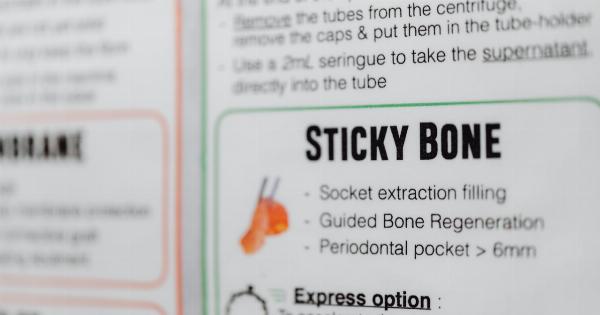Menopause is a natural biological process that marks the end of a woman’s reproductive years. One of the most common symptoms experienced by women during this phase is hot flashes.
Hot flashes are sudden feelings of intense heat that can cause flushing, sweating, and a rapid heartbeat. They are a result of hormonal changes that occur as the ovaries start producing less estrogen.
Understanding Hot Flashes
Hot flashes can vary in frequency, duration, and intensity among women. Some women may experience occasional mild hot flashes, while others may have them several times a day, accompanied by severe sweating and palpitations.
The exact cause of hot flashes is still not fully understood, but it is believed to be related to the hypothalamus, which regulates body temperature.
Common Triggers
Several factors can trigger hot flashes, including:.
- Hormonal changes
- Stress and anxiety
- Hot weather
- Spicy foods
- Alcohol consumption
- Caffeine
- Tobacco
Identifying the triggers specific to an individual can be helpful in managing hot flashes.
Managing Hot Flashes
While hot flashes cannot be completely avoided, there are strategies that can help manage their frequency and intensity. Here are a few tips:.
- Dress in layers: Wearing layers allows you to remove clothing as needed when a hot flash strikes.
- Avoid triggers: Identify and avoid substances or conditions that trigger hot flashes. This may include spicy foods, alcohol, and caffeine.
- Cool down: Keep your living environment cool by using fans, air conditioning, or opening windows. You can also place a cold pack under your pillow to cool down quickly during the night if hot flashes disrupt your sleep.
- Relaxation techniques: Practicing relaxation techniques such as deep breathing, meditation, and yoga can help reduce the frequency and intensity of hot flashes.
- Regular exercise: Engaging in regular physical activity has been shown to reduce hot flashes. Choose activities you enjoy, such as walking, swimming, or dancing.
- Avoid smoking: Smoking has been linked to increased hot flashes. Quitting smoking can not only improve your overall health but also help manage hot flashes.
- Herbal remedies: Some herbal supplements like black cohosh and evening primrose oil have shown promising results in reducing hot flashes. However, consult your healthcare provider before trying any herbal remedies.
- Hormone replacement therapy (HRT): In severe cases, when hot flashes significantly affect the quality of life, hormone replacement therapy may be considered. HRT involves taking estrogen, either alone or with progesterone, to relieve menopausal symptoms. However, it’s important to discuss the potential risks and benefits of HRT with your doctor.
- Supportive undergarments: Wearing moisture-wicking undergarments can help absorb sweat and keep you dry during hot flashes.
- Stay well-hydrated: Drinking plenty of water throughout the day can help manage hot flashes and overall well-being.
When to Seek Medical Advice
While hot flashes are usually harmless and go away on their own, there are instances when medical advice should be sought:.
- If hot flashes are severe and disrupting your daily life
- If hot flashes occur alongside other concerning symptoms
- If you experience night sweats that disrupt your sleep for an extended period
- If you have a personal or family history of certain medical conditions that may be impacted by hormonal changes
Speaking with a healthcare provider can help determine the underlying cause of hot flashes and provide appropriate treatment if necessary.
Conclusion
Hot flashes are a common symptom experienced by women during menopause. While they can be bothersome, there are several strategies to manage and reduce their impact.
By understanding the triggers, practicing relaxation techniques, and making lifestyle changes, women can navigate through this phase with greater comfort and improved quality of life.

























